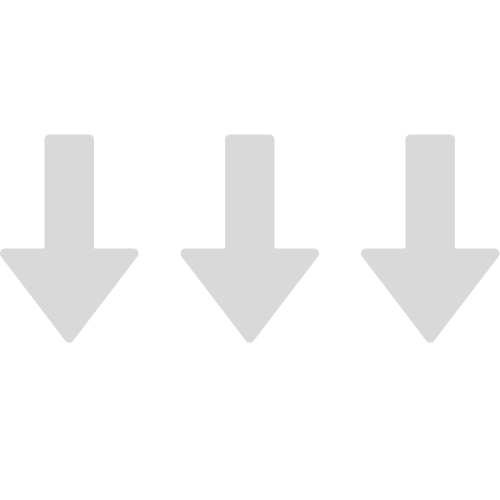Competition & Consumer Protection is a new practice in JDP launched in March 2024. The head of the practice, Damian Kopera, expert on anti-trust law with 10 years of experience, compiled a summary of key rulings and decisions issued by Polish and EU anti-trust authorities (the Competition and Consumer Protection Office (UOKiK), the Competition and Consumer Protection Court and the European Commission) that materially affected or will affect many industries.
We invite you to read about the most important, in our view, developments in the area of anti‐trust law and consumer protection.
Competition protection
Mondelēz – passive sales restrictions
The European Commission (EC) imposed a fine of €337.5 million on Mondelēz International for restrictions regarding the sale of chocolate, biscuits and coffee.
 Mondelēz allegedly entered into agreements with distributors under which the territories in which they could sell and the wholesale customers to whom they could sell products were restricted. Mondelēz required, among other things, higher prices for exports and prevented exclusive distributors from responding to inquiries about sales outside their territories. Mondelēz thus violated the prohibition on restricting passive sales.
Mondelēz allegedly entered into agreements with distributors under which the territories in which they could sell and the wholesale customers to whom they could sell products were restricted. Mondelēz required, among other things, higher prices for exports and prevented exclusive distributors from responding to inquiries about sales outside their territories. Mondelēz thus violated the prohibition on restricting passive sales.
The EC also found that Mondelēz had abused its dominant position by refusing to supply wholesalers in Germany to prevent resale in Austria, Belgium, Bulgaria and Romania, and by ceasing to supply distributors in the Netherlands to block imports into Belgium.
According to the EC, these practices were aimed at artificially dividing the market and maintaining higher prices. Retailers could not obtain products from EU countries at lower prices and resell them at higher prices.
Fines for obstructing a search
A fine of €15.9 million for obstructing a search was imposed on International Flavors & Fragrances Inc. (a US corporation specialising in the creation, production and supply of flavours and fragrances for the food, personal care and household industries) and International Flavors & Fragrances IFF France SAS.
One of the company’s employees was caught deleting messages from WhatsApp. He was deleting messages exchanged with a competitor of the company. It must be emphasised that this took place after the Commission had already started its activities. The penalty was reduced by 50% due to the fact that the company actively cooperated with the Commission in recovering the deleted data.
Recently, similar cases have taken place in Poland.
- The President of UOKiK imposed fines of PLN 1 million and PLN 10 million on Jura Poland and Euro-net, respectively, for deleting messages on WhatsApp.
- A fine of PLN 150,000 was imposed on Abexil Bąbała sp.j. for misleading the searchers by issuing as a business phone a device that was not in fact used for business purposes, and for delaying in issuing the relevant device. A PLN 100,000 fine was imposed on a partner of the searched company for doing so.

These cases show that business entities should not think that destroying evidence will pay off better than handing it over, hoping to avoid liability for antitrust violations.
Vertical resale prices in Poland: continuation

The recent activities of the President of UOKiK show that its priority remains to combat prohibited vertical agreements, in particular those of a pricing nature. The authority informed of conducting searches in two separate cases.
Garmin (company selling smartwatches and navigation devices) and Xiaomi (company selling consumer electronics, household appliances and smart products) are alleged to have entered into prohibited agreements with their distributors. According to the announcements, consumers may have been forced to buy products at inflated prices as a result of the collusion. The President of UOKiK is currently analysing the collected evidence.
Interestingly, the Garmin’s announcement suggests that the President of UOKiK tracked down the case primarily based on the similarity of prices in many online stores (which must have been the basis for the granting of a search consent by the Competition and Consumer Protection Court). According to the available information, it is more and more common that tables comparing the resale prices applied by individual distributors are the basis for the search consent issued by the Competition and Consumer Protection Court.
The President of UOKiK presented allegations against Jura Poland and the owners of the following retail stores: RTV Euro AGD, Media Markt and Media Expert. Allegations were also presented to an individual, however, the announcement does not specify who the individual concerned is. Jura Poland and its authorised distributors may have agreed on minimum prices for the resale of coffee machines and accessories. Jura Poland allegedly threatened distributors with, among other things, suspending deliveries if they do not adhere to the arrangements. The companies are facing fines of up to 10 % of their turnover and the managing person of up to PLN 2 million.

Gaming market
The announcement of an inspection at the head office of one of the Sony companies, as well as at two video game developers and publishers in Poland gives hope that the President of UOKiK will look into agreements other than just vertical-pricing agreements.
The authority intends to check the functioning of the gaming market in Poland. According to a press release, the scope of the inspection will be very broad, i.e. it will cover prohibited agreements and abuse of a dominant position.
The authority expressed concerns that these practices could result in the exclusion of competing platforms, severe exploitation of game developers and publishers, and higher prices for gamers.
This includes restrictions on the sale of games and additional content on competing platforms or online stores, interference with the pricing policies of game developers and publishers, or restricting market access for competitor platforms and other digital service providers.
The activities of the President of UOKiK align with recent trends in the area of antitrust law, which increasingly focus on the broadly defined digital sector.
Notably, the European Commission has recently updated its guidelines on defining the relevant market to take into account the specific nature of the digital market.

Consumer protection
Omnibus directive: not only the lowest price
As of 1 January 2023, the so-called Omnibus directive is in force in Poland. It is best known for imposing an obligation to display the lowest price from 30 days before the promotion has been announced.
However, the Directive also introduced new disclosure obligations for entrepreneurs, in particular for online shopping platforms. Their operators enabling the conclusion of contracts between consumers and sellers must inform, among other things, whether the third party offering goods or services on the online shopping platform is an entrepreneur. Additionally, an obligation to provide information on the distribution of obligations relating to the contract that is concluded by the consumer on an online shopping platform was introduced.
 In the opinion of the President of UOKiK, Travelist sp. z o.o., which operates the Travelist website via which consumers can browse and select holiday offers, failed to fulfil these obligations.
In the opinion of the President of UOKiK, Travelist sp. z o.o., which operates the Travelist website via which consumers can browse and select holiday offers, failed to fulfil these obligations.
According to the President of UOKiK, the information was provided in a very short form, hidden in non-intuitive tabs of the website (it was necessary to scroll/click through the interface several times). In particular, there was no direct information on whether the entity was an entrepreneur. The company was required to change its practices, however, no fine was imposed.
President of UOKiK versus dark patterns
The authority continues to be very active when it comes to combating dark patterns. These are manipulative practices of entrepreneurs who take advantage of consumers’ lack of attention or vulnerability online.
The President of UOKiK presented allegations against BOLD LLC, the operator of interviewme.pl, a service on which a resume can be generated. The portal primarily promoted free options for using the website.
In practice, these options were very limited. When a document was ready to download, it turned out that payment was required for downloading and printing it. It was stated that the subscription would be renewed automatically in barely visible, small and light print on a darker background. The authority stated that this information was presented to consumers in an unclear manner, in particular, because the information was illegible and given far into the process.
Misleading discounts: Biedronka again scrutinised by the President of UOKiK
Jeronimo Martins, which runs the well-known retail chain Biedronka, ran a promotional campaign called “Magic of Discounts – Toys and Books – Voucher from 01.12.2022 to 03.12.2022”.
According to the President of UOKiK, the company informed about the campaign in a misleading manner. If holders of the Moja Biedronka app or card had bought three products from the books and/or toys category, they would have received half of the amount spent on these products in the form of a voucher printed on the receipt.
The materials informing about the campaign were marked with an asterisk, with smaller print informing about assortment restrictions. The voucher could only be used for selected household goods or textiles. The information about the exclusion of product categories from the promotion was presented after the purchase, when the voucher receipt was printed. Detailed information was only available on the retail chain’s website, even though consumers made purchases in a stationary store. The President of UOKiK required the company to give customers who had not used the voucher a financial compensation of PLN 150.

Public compensation: essential judgment of the Supreme Court
The President of UOKiK, known for imposing high fines, may also apply other measures to remedy the effects of violations of consumer rights. Their catalogue is open, which raises doubts in the case of applying a measure not indicated in the statutory provisions, such as public compensation. It is a form of compensation granted to consumers for violation of their rights, e.g. refund of a fee imposed contrary to the law or a contract.
In its judgment of 12 June 2024, case file no. II NSKP 43/23, the Supreme Court found that the catalogue of measures that the President of UOKiK may use to remedy the effects of violation of consumer rights is non‐exhaustive.
The Supreme Court also disagreed with the view, presented in the legal literature and by the appellant (iCredit sp. z o.o.), that by applying this measure, the President of UOKiK “creates civil-law relations between consumers and the entrepreneur”.
In this context, it stated that such compensation is limited to a specific event and a specific violation of the law so as to bring the situation into compliance with the law. Accordingly, the Court agreed with the authority in the dispute as to the admissibility of public compensation in Poland.
If you have any questions concerning the issues discussed in this newsletter, feel free to contact us.
Contact
Damian Kopera – Attorney-at-law, Counsel – Competition & Consumer Protection

